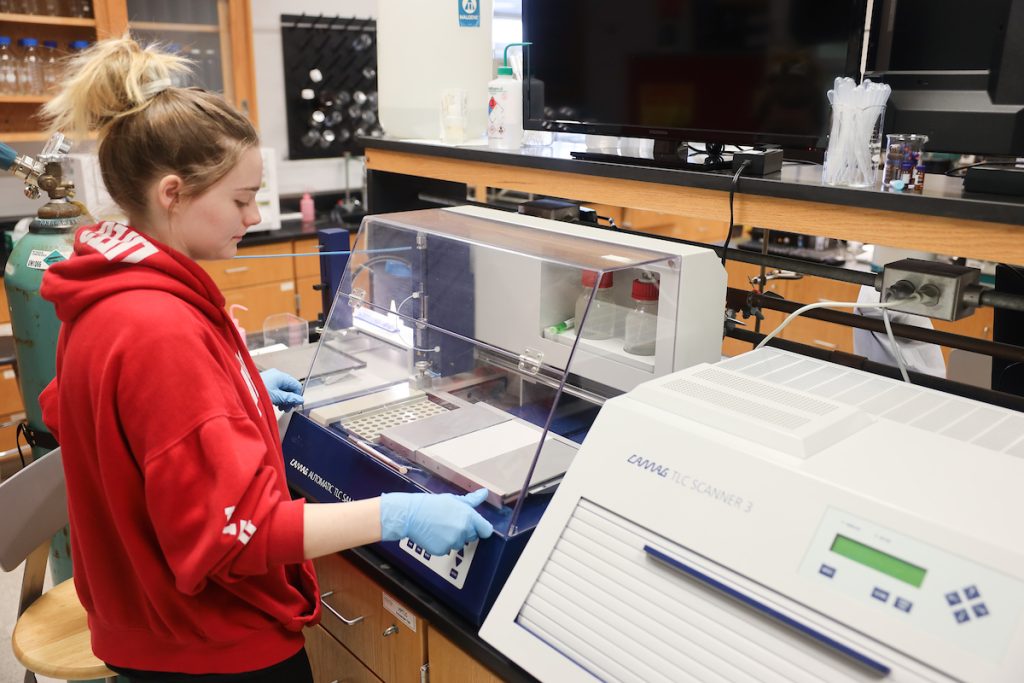CFCC chemical technology students work with local industry to advance scientific instrumentation

McKenzie Britt, CFCC Student, working with the HPTLC instrumentation.
HPTLC instrumentation analyzes complex mixtures, separates the components from one another, and by using chemical fingerprints, can establish the identity of different herbal drugs. The technique also identifies and quantifies important components in the mixture. The primary industry using this type of equipment is dietary supplements. However, through the research of CFCC students, the uses of the instrumentation are expanding to several other industries.
Multiple CFCC Chemical Technology students have worked with CSI as interns. Each intern works with the HPTLC instrument to test and document the instrumentation parameters and settings on various sample types. Interns have worked with bioethanol, synthetic dyes, seaweed, botanicals, and fungi. Once the interns determine instrumentation settings, the research is provided to CSI for testing. CSI writes and co-publishes a white paper with the student when the settings are verified. This research allows anyone using the CAMAG HPTLC instrumentation to expand the application of the system to derive universal results.
McKenzie Britt, a current CFCC student, interned with CSI and studied bioethanol. Her research, A Validated High-Performance Thin-Layer Chromatography Method for Monitoring Glucose and Malto Oligosaccharides with Multiple Degree of Polymerization During Bioethanol Production from Corn Biomass, co-authored by Dr. Wilmer Perera, Laboratory Manager at CSI, was developed into a lecture and presented at the 2021 Eastern Analytical Symposium & Exposition.
Hands-on experience with the instrumentation isn’t just limited to interns. A year ago, CSI provided the program with one of the HPTLC instruments. The equipment resides in the Chemical Technology lab, allowing all students to learn, experiment, and gain first-hand training.
“The experience working with Cape Fear Community College Chemical Technology students has been excellent,” said Dr. Perera. “I love seeing how these young students, just starting on their career path with little to no knowledge or technique, rapidly improve on their skills in just a few short months. Their research and results have been fantastic.”
“This partnership with CSI is another example of our commitment to providing CFCC students with the best opportunities for hands-on learning,” said Jim Morton, CFCC President. “The expanded applications of the HPTLC instrument not only enhances our educational programs but also contribute to advancing the scientific community.”
CAMAG is the world’s leader in instrumental Thin-Layer Chromatography (TLC/HPTLC). Since 1961, CAMAG has been dedicated to developing and manufacturing instruments, software, and consumables for all TLC/HPTLC procedure steps. They are headquartered in Muttenz, Switzerland, but have maintained a North American presence in Wilmington, NC, since 1986.
To learn more about CFCC’s Chemical Technology program, visit cfcc.edu/chemical-technology/ .

